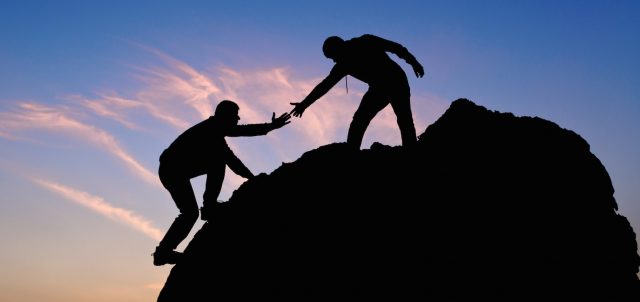Looking on the Bright Side
An original article written by Former Lake Geneva City Alderperson and activist Terry O’Neill specifically for the Geneva Shore Report.
Who did you help today? That may seem like an odd question, but if you have a job and you work for someone you are helping them, and they in turn are helping you by paying you for the service that you have provided. People who buy or use the company’s products or services in a like manner are also helping to support the company, and in turn the company’s products or services are helping the customers. Although not often viewed this way, a good business is really all about “People Helping People”.
The key to enjoying work is to enjoy helping or assisting others through the work that you do. Pleasing the customer is really your only product, meaning pleasing your boss and the people you serve (without it you lose your job). Enjoy helping them and you will enjoy your work and you will benefit society in the process. Money is the means by which the benefits of your work (labor) is measured and then divided up. You get a portion, the company gets a portion, the wholesalers, retailers and all the way to the final customer. Everyone gets a portion of the benefit of your labor with the government taking its own portion every time the benefits of your labor change hands between you and the final customer. In fact, who benefits from your labor, how it is divided up, and where it goes is what politics, government, business and corruption are all about. How you look at this depends on where you are in the benefit chain, and that to a large extent determines your political views. If you have been fortunate enough to be in several different positions on the benefit chain, then you have a better chance of understanding the views of others. You can hear about it, read about it and watch it on TV, but nothing compares with having lived something to begin to genuinely understand it. This inclusive view comes from the good, unifying and cooperative side within us. The side that feels good when we benefit from the work that we have accomplished, and the side that feels enjoyment when we help others, and the side that benefits our whole society.
Who took advantage of you today? There is, of course, a flipside that is not about pleasing people, but rather controlling and using them. It is often done by those with positions of power and authority over others. They use their position or ability directly, or indirectly, to control, direct, influence or manipulate others for personal benefit even to the detriment of others. Whether being in a position to control or manipulate others comes from their own ability, wealth, or a role of authority in government, business, religion, family, or from a controlling thought or a physical dependency, it is done for one’s personal benefit regardless of the impact or detriment to another. Although often it may be falsely sold as benefitting those being controlled or manipulated, it is not. This flip side is held by an influential minority that seem to rise to the top and control many of the influential positions in businesses, government, political parties, religions and charities. Being a victim of the flipside, or being convinced (even if not true) that you are a victim, creates anger and hatred that adds an emotional layer to manipulative control. What experience we have had, and how we see it, has a lot to do with our position on the benefit chain, and those that we have worked with, and those who have had control or influence over us. If it has had a negative impact, don’t let it affect your attitude by harboring anger inside.
Control your own attitude, which is a composite outward expression of one’s internal reality. It is a composite of our thoughts, feelings and emotions that is reflected in everything we do. It affects what we see, how we see, and how we react. Our attitude, more than any other parameter, determines our personal outlook and our future. Although often viewed as the cause, attitude is not a cause, it is the result of personal experience and our response to it. Attitude slants everything we see to reinforce itself, and as we become more entrenched in it, we can become blinded by it, as it takes control over us. That is, unless we keep an open mind, which then puts us back in control of our own thoughts, and will be reflected in our understanding and attitude towards others.









